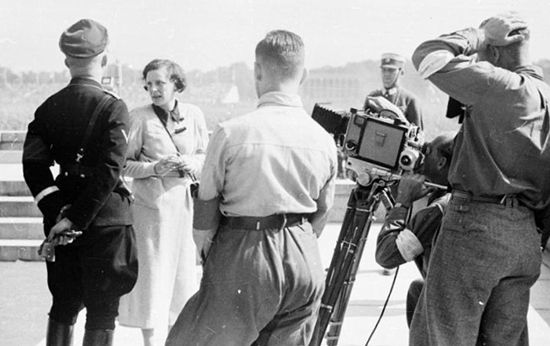
Filter by content type:
Filter by date:

Leni Riefenstahl on the set of Triumph of the Will (1935)
Max Schindler remembers the German occupation of Poland and his family’s decision to return to their grandmother’s small village to evade the Nazis. He recalls how even though there were anti-Jewish measures including expulsion from school, his family’s Jewish owned store still operated in the small town. Just weeks before the Nazis issued an edict forcing all Jews into a ghetto, Max celebrated his bar mitzvah.
100 Days to Inspire Respect
Margaret Lambert describes how she experienced hate as a consequence of stories that turned people against Jews and broke human connections.
100 Days to Inspire Respect
Researchers have studied hate in order to deepen their understanding of how people develop the emotions and actions associated with hate. Learn more about their findings by watching the video, "What is Hate?"
Pagination
- Previous page
- Page 29
- Next page